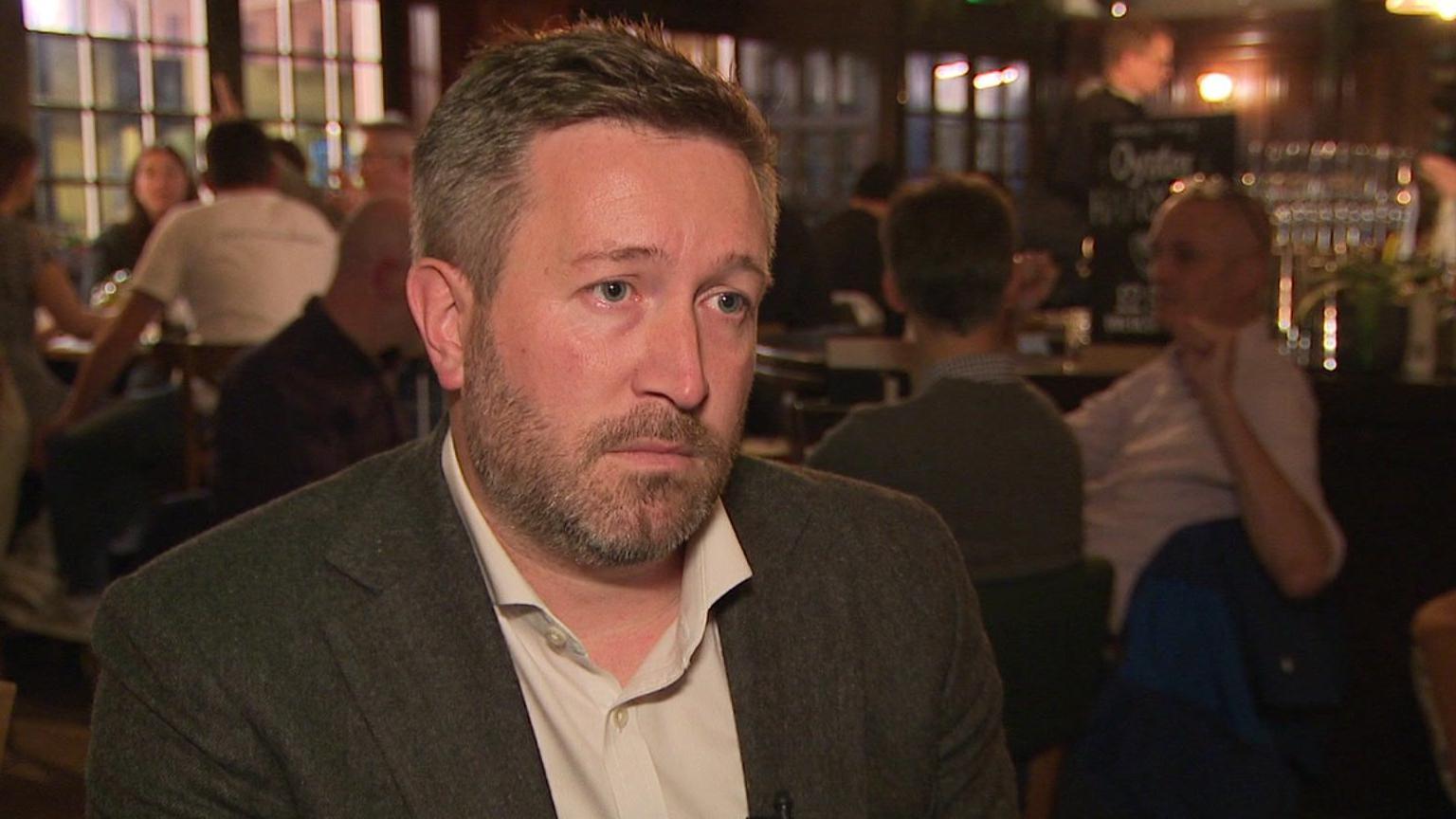Restaurant workers' jobs threatened by Budget, bosses warn

Last month's Budget raised the amount employers will pay in National Insurance Contributions
- Published
Top pub and restaurant bosses have warned the chancellor that tax rises in last month's Budget will "unquestionably" cause closures and job losses.
In a letter, more than 200 signatories have said the hospitality industry is disproportionately impacted by an "unsustainable" hike in the amount employers pay in National Insurance contributions (NICs).
It adds that businesses have "no capacity to pass the costs onto customers", which would instead lead to job cuts and closures of smaller firms.
Chancellor Rachel Reeves has said that her National Insurance changes for businesses will generate £25bn, which would aid funding of public services, such as the NHS.
From April, the rate employers pay in National Insurance will rise from 13.8% to 15%, and the threshold at which they start paying the tax on each employee's salary will be reduced from £9,100 per year to £5,000.
Darren Jones, chief secretary to the Treasury, told the BBC's Sunday with Laura Kuenssberg programme that the changes had been designed in a way "that tried to limit the extra cost on small business".
Signatories of the letter include Kate Nicholls, chief executive of UKHospitality, the bosses of pub firms Fuller's and Stonegate Group, and Premier Inn's owner, Whitbread.
They are supported by a further 209 businesses, together employing tens of thousands of people across the UK.
According to the letter, the cost increases will cause jobs to be "drastically" cut and hours to be reduced for workers.
Ms Nicholls told the BBC that firms in the industry facing these "tough decisions" may also reconsider investing.
"We understand that the government has a tough job to do," she said, but urged politicians to "have a rethink".
Jones said that the government would not reassess the plan, and that many employers would pay the same in NI contributions as they do now, or less.
"I think the public would recognise that bigger businesses are able to burden some of the contributions that we need to make to the state.
"Getting the NHS back on its feet so workers who are off sick can get back to work is probably something that we'd say we'd all benefit from," he added.
Impact on lower earners
The letter from industry bosses suggests that changes in the NICs threshold are "regressive in their impact on lower earners and will impact flexible working practices which many older workers and parents rely upon".
The signatories are calling for the government to consider one of two measures to "protect businesses who employ low earners" to mitigate the impact.
Suggested measures are a new employer NICs band which would apply between £5,000 and £9,100 at a lower rate of 5%, or implementing an exemption for taxpayers working fewer than 20 hours per week.
The Office for Budget Responsibility (OBR) has calculated that three quarters of the impact of the NI changes will be felt by employees as bosses hold back on pay rises and hiring in the face of higher wage bills.
During a select committee hearing on Tuesday, the OBR's Prof David Miles said it was "very plausible" this would disproportionately affect lower-paid workers.
The changes set out in the Budget are, however, predicted to raise some £25bn a year, making it one of the biggest single tax-raising measures in history.
The chancellor has previously said that she was not immune to "criticism" over the move, but has argued that it will put public finances on a "firm footing".
The hospitality industry's letter follows on from big British supermarkets such as M&S and Sainsbury's hinting that they may put up prices in a bid to offset higher wage bills.
Sainsbury's chief executive Simon Roberts said on Thursday that the NI changes would cost the business around £140m - a sum which does not include the increases to minimum wage.
The boss of Wetherspoons also said earlier this week that following the Budget, taxes and business costs were "expected to increase by approximately £60m".
Its chairman said that he believed many food and drink businesses planned to pass costs on to customers.
Amid criticism from the hospitality sector, Rachel Reeves is expected to unveil pension reforms this week which are intended to channel money into private businesses and infrastructure.
At her first Mansion House speech in the City of London, Reeves will pitch "growth brought by unlocking private sector investment, including in our financial services industry, and growth brought about by reform - both of our economy and of our public services".
Related topics
- Published30 October 2024

- Published31 October 2024

- Published30 October 2024
